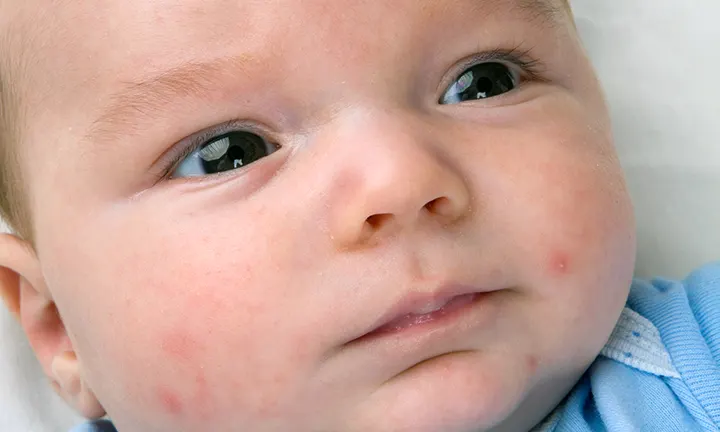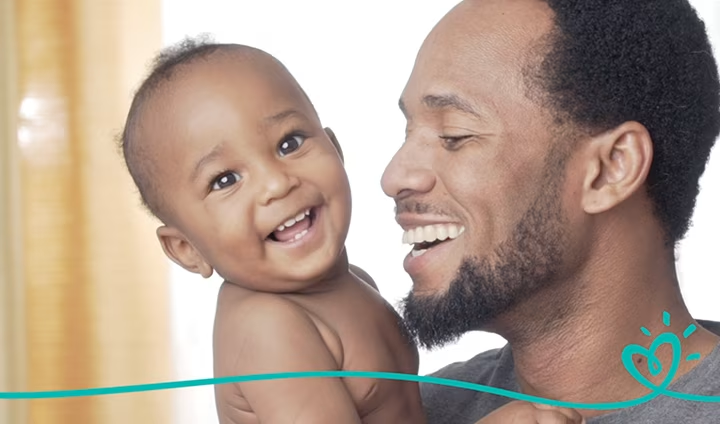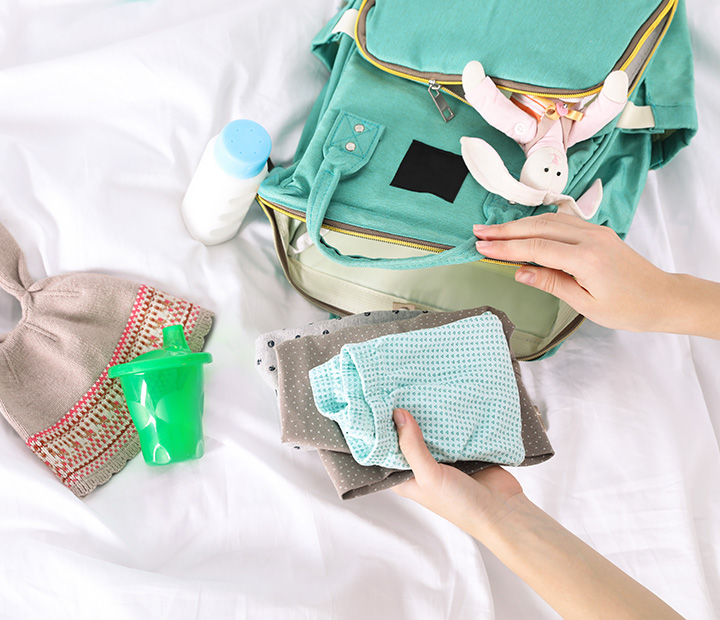Understanding Baby Acne: How to Care for Your Newborn’s Skin
Your precious newborn has finally arrived, but you might notice small, pimple-like spots on their face after a few weeks. Don’t be alarmed—your little one isn’t yet entering adolescence! This is likely baby acne, a common condition among infants. Read on to learn more about newborn acne and how you can care for your baby’s sensitive skin during this phase.
What Is Baby Acne and What Are the Symptoms?
You may see your newborn baby with small pimples on their face, usually on their cheeks, nose, eyelids, chin, and/or forehead. This may be baby acne, which is also referred to as neonatal acne. It’s common in newborns and appears in 3 out of 10 babies.
When Does Baby Acne Start and How Long Does It Last?
Baby acne may first appear on your newborn at around 2 to 5 weeks old. So, when does baby acne go away? It's a temporary condition that typically clears up after about three to four months and leaves no scars.
What Causes Baby Acne?
There is no way to prevent baby acne. Experts are not exactly sure what causes baby acne, but it could be due to one of the following:
Inflammation caused by yeast on your baby's skin
Overstimulated oil glands in your baby's skin caused by encountering hormones in the placenta during your pregnancy.
Baby acne has nothing to do with the type of acne that a teenager may experience.
What Does Baby Acne Look Like?
Baby acne looks like tiny red or white bumps (a.k.a. milia) or pustules that appear on your infant's cheeks, nose, eyelids, chin, and/or forehead. Sometimes the acne can also appear on your baby’s scalp or on their neck or upper trunk. Unlike acne that teens and adults can experience, baby acne does not have blackheads or whiteheads.
How to Treat Baby Acne
There are no treatments or natural, at-home remedies for clearing up baby acne—you will just have to wait for it to go away on its own.
In the meantime, here’s how you can care for your baby's delicate skin:
Place a soft, clean blanket under your baby’s head when they’re awake to shield their skin from any laundry detergent residue on sheets or clothing
Ensure that your baby's bed sheets and clothing haven't been washed with harsh laundry detergents (use one designed specifically for babies)
Maintain proper hygiene by gently washing your little one's face every day with warm water and a mild baby soap and pat it dry
Avoid irritating the acne by pinching or scrubbing the pimples as this may cause more harm or even lead to an infection. Avoid moisturizing their face with lotions or oils.
When Should You See Your Baby’s Healthcare Provider?
So, when is baby acne a concern? If anything about your baby's complexion seems out of the ordinary, or if the condition isn't getting better after three to four months, consult your baby's healthcare provider. Also, contact your baby's provider if you ever notice any of the following:
Skin blisters
Peeling skin
Irritability
Your baby isn't feeding well.
How Is Baby Acne Diagnosed?
Your baby’s healthcare provider will be able to determine if it's baby acne or some other form of baby rash such as heat rash or eczema after examining your little one.
The healthcare provider may prescribe a medicated ointment or some other treatment for the baby acne. But be sure not to use any over-the-counter creams or medications without consulting the healthcare provider first, as these can damage your baby's delicate skin.
The Bottom Line
A little baby acne will not diminish how adorable your newborn is. Like teenage acne, baby acne is just something that can happen as a part of growing up. Take care of your little one's skin as best as you can, wait for it to pass, and keep giving those little cheeks plenty of kisses.
Did you know that you can get rewarded for all the baby wipes and diapers you buy from Pampers? Simply download the Pampers Rewards App, scan your Pampers purchases, and watch your Pampers Cash balance grow.
How We Wrote This Article The information in this article is based on the expert advice found in trusted medical and government sources, such as the American Academy of Pediatrics and the American College of Obstetricians and Gynecologists. You can find a full list of sources used for this article below. The content on this page should not replace professional medical advice. Always consult medical professionals for full diagnosis and treatment.
Join Pampers Club and get:







